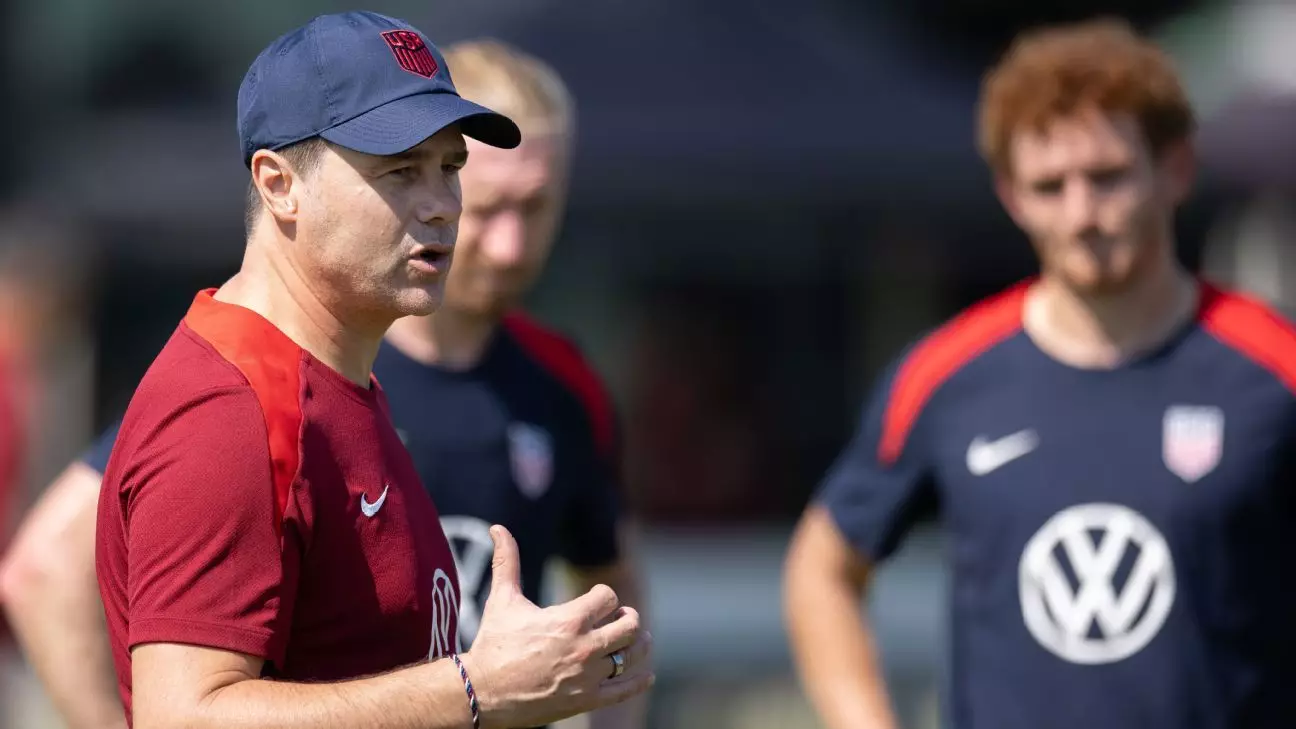In a significant turn for American soccer, USMNT manager Mauricio Pochettino has extended a compelling invitation to players participating in Major League Soccer (MLS). Just before the high-stakes quarterfinal match against Jamaica in the Concacaf Nations League, in which the U.S. holds a slender 1-0 lead, Pochettino was clear about his commitment to recognizing talent from the MLS. He emphasized that American players showcasing their skills in domestic leagues will not be overlooked in his selection processes, creating a more inclusive environment for local talent.
This approach is revolutionary in that it sends a strong message to soccer players in the U.S. They are not only competing for spots against those in top European leagues but are also given equal stature and opportunity. Pochettino, armed with insights from his time at Tottenham Hotspur, understands the unique challenges posed by MLS, particularly its physicality and competitive nature. By acknowledging the high level of training and discipline required to succeed in the league, he creates a bridge between domestic and international soccer circles, promoting a sense of worth and recognition for MLS talents.
Pochettino has not shied away from highlighting the importance of performance metrics, especially when differentiating between friendly matches and competitive fixtures. His stance places increased pressure on players to deliver results in more intense match conditions. It marks a cultural shift in American soccer where results lead to opportunities, thereby fortifying the pathway to international competitions. After just two months as manager, he has a keen awareness of the underlying expectation to win, which reflects a broader sports culture in the United States.
This emphasis on competitive integrity is crucial. The U.S. soccer landscape has, for too long, been associated with lackadaisical friendlies, where outcomes lack meaningful consequence. Pochettino’s insistence on intensifying the competition recognizes that players need to not only cultivate skills but also to perform under pressure. Building this expectation is crucial; it aligns with the spirit of American sports at large and fosters an environment where excellence is the target.
Pochettino’s public declaration of backing MLS players serves as a stepping stone for developing the next generation of U.S. soccer talents. The upcoming January training camp will be a critical juncture for aspiring international talents in the league. The combination of opportunity and public acknowledgment may catalyze performance as players strive to prove their worth. The manager’s message is unequivocal: if talent is demonstrated, opportunity will follow; every performance in MLS is seen as a ticket to the national team.
The broader implications of Pochettino’s strategy extend beyond individual players to the prospect of elevating MLS’s brand in the international soccer community. By giving recognition to local talents, Pochettino is positioning MLS as a legitimate breeding ground for high-level players rather than merely a retirement league for veterans. Each match played in MLS represents a chance to enhance the league’s standing on the global stage.
Looking ahead, Mauricio Pochettino’s vision for the USMNT signals a transformative period in American soccer. It aligns with his desire to instill an unyielding competitive spirit while fostering talent from homegrown leagues. As the national team gears up for more significant challenges, the focus will increasingly shift towards performance-driven selections that prioritize competitive resilience over geographical lineage.
Pochettino’s influence may very well usher in an era where American soccer is no longer seen as the underdog. With a commitment to fostering excellence and utilizing the depth of talent available in MLS, the USMNT could see a substantial elevation in its global standing. As players grapple with the increasing pressures of competition both domestically and internationally, the true test lies in their ability to rise to the occasion under Pochettino’s keen mentorship. The future looks bright, as the manager not only focuses on winning games but is also intent on revolutionizing the approach to how American soccer is played and perceived on the world stage.


Leave a Reply